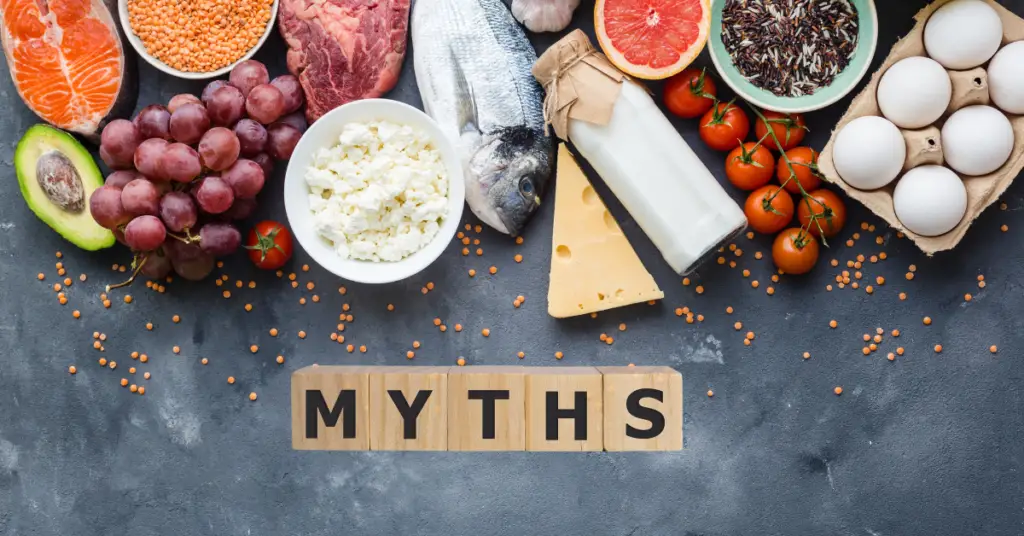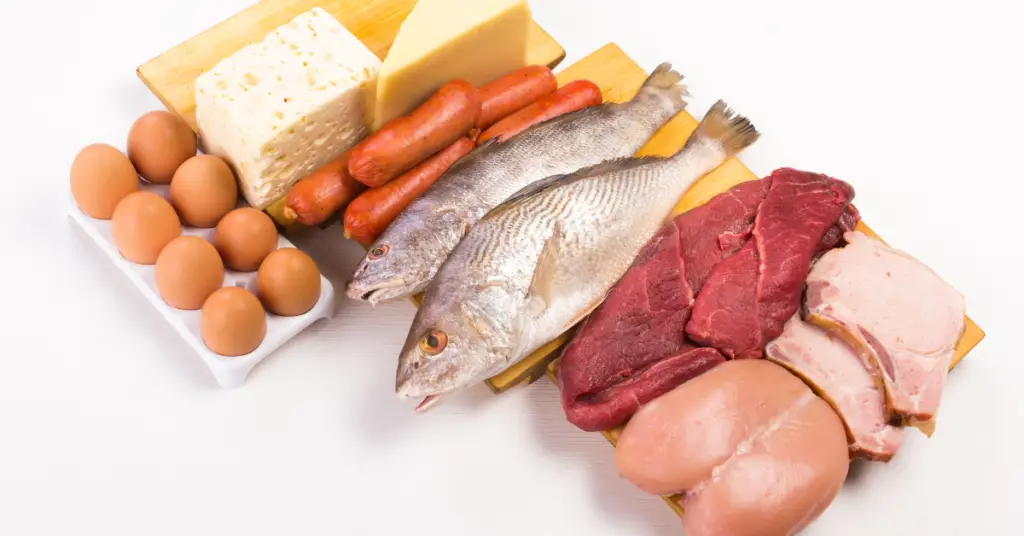
Information on nutrition is everywhere in today’s world — social media influencers, health blogs, and yes well-meaning friends and family can have buckets full to say about what we should or shouldn’t eat! And, with all this advice, comes confusion about facts and fallacies. While certain nutrition myths exist because of a few outdated studies, many others are entirely without factual basis — and yet they endure, simply because they sound plausible enough or support the prevailing narrative. Now, lets sharpen our shovel and unearth the largest myth in nutrition with new science-based evidence.
Myth #1: “Carbs are bad and make you fat”
The Truth:
Still, not all carbohydrates are created equal. Excessive consumption of refined carbohydrates—such as sugary snacks and products based on white flour—can cause weight gain; however, slow-digestible carbohydrates from whole foods are indispensable in a balanced, healthy diet. Whole grains, vegetables, fruits, and legumes are rich in complex carbohydrates (containing fiber), which help with digestive betterment, heart health, and stable energy.
Carbs are the body’s favorite source of energy, particularly the muscles and brain. Little energization and inattention which can happen when you stop carbs completely. Dumping carbs is not the solution, what you need to do instead is to focus on actually improving the quality of carbohydrates that you consume. Choose whole over processed and your body will thank you.
Myth #2: “Eating Fat Makes You Fat”

The Truth:
This myth harks back to the era of the ‘low-fat diet,’ a fad that made fat consumption sound like some crime against humanity because it contains more calories (9 cal/g) than either protein or amino acid (4 cal/g). Not all fat is bad, and not a single kind of fat will make you gain weight or earn yourself heart disease at one that second. Indeed, some kinds of fat — specifically unsaturated fat, the kind in olive oil, avocados, and nuts — are beneficial for heart function, brain activity, and cell structure.
Avoid trans fats, we all know that (which are artificial fats and often turn up in the hangar over takeout from your local fast-food joints) because they have been reliably linked to heart disease. Try to limit saturated fats that come from red meat and dairy. On the other hand, healthy fats are essential nutrients that are useful for our body and help you lose weight naturally because they increase satiety and avoid overeating.
Myth #3: “You Need to Detox Regularly”
The Truth:
Detoxing, usually in the guise of juice cleanses extreme dieting, or fasting, is a trendy health thing. The premise being that toxins build up in our bodies over time from the food we eat and the environment we are in, which is why from time to time it is necessary to “cleanse” them out. Still, the human body has a natural detoxifier — the liver, kidneys, and digestive tract. It is designed to filter out waste and toxins day in, and day out as long as it’s provided with a healthy diet including water,
There is little evidence for these products or diets and they can even cause nutritional imbalances or alter metabolism. The dramatic weight loss associated with extreme detoxes is temporary, and typically stems from the loss of water rather than fat, followed by a rapid rebound.
Myth #4: Protein Only Comes from Meat and Dairy

The Truth:
Protein is an essential macronutrient, necessary for muscle maintenance, immune function & hormone production/function. However, many people think that set protein is only in animal sources like meat, dairy, and eggs. At the same time, lots of plant foods also offer fantastic sources of protein.
Lentils, beans, chickpeas, quinoa, tofu tempeh, and some nuts and seeds are excellent sources of protein that easily match the body’s needs for protein if incorporated into a wholesome diet. As an example, one cup of prepared lentils has approximately eighteen g of protein, which is similar to a portion of meat.
The protein needs of virtually everybody, including athletes and those trying to gain muscle, can be satiated with a well-planned plant-based diet containing diversity.
Myth # 5: Eating Late at Night Causes Weight Gain
The Truth:
The most popular urban legend is that eating late at night leads to weight gain, but the more appropriate interpretation of it isn’t when you eat — It’s what and how much you eat. As a result, eating at night will make you fat — if this is followed by an excess intake of caloric foods, particularly unhealthy food.
Some individuals scheduled to return home late do not always have the option of finding a balanced snack or dinner in the twilight hours. Nonetheless, mindless eating — snacking chips or chocolates while watching television — can result in over-consume calories. If you feel genuinely hungry later, go for a sensible snack or light meal (vegetable sticks and dip, low-fat yogurt) but watch your portion sizes. It’s not just timing that’s making you gain weight.
Myth #6: Inevitably Fresh Produce is Healthier Than Frozen or Canned
The Truth: Fresh fruits and vegetables are great, but the assumption that they are always healthier than their frozen or canned counterparts is false. In fact, frozen and canned fruits and vegetables are frequently harvested and then processed while they are still at their most peak of ripeness, preserving nutrients. The journey produce makes from the farm until it gets to your plate causes nutrient degradation.
Frozen produce is a good alternative – it generally has most of its nutrients and tends to be cheaper than fresh produce. If opting for canned, as much as possible opt for ones without added sugar or sodium.
Myth #7: Organic foods are always healthier than conventional foods

The Truth:
Organic food has become the trendsetter just lately, marketed as a healthier alternative and produced without man-made pesticides, fertilizers, and GMOs. On a nutrition level though, hardly anything shows organic food is better for you than non-organic.
Of course, organic foods do come with the benefit of less exposure to harmful pesticides, and they may also have a smaller environmental footprint depending on farming practices. Having said that, foods grown the conventional way are perfectly safe to eat, and for those on a tight budget, non-organic vegetables and fruits still give the body what it needs. More than organic vs. non-organic is simply getting more fruits and vegetables of any kind into our diet.
Myth #8: “All Calories Are Created Equal”
The Truth:
Calories are a unit of energy; however, the foods that you eat are much more important than simply calories in and calories out. Equally calories can lead to differences significantly in blood sugar control, metabolism, satiety, and gut health. So 200 calories from an almond and 200 from a soda how different they are for the organism.
Foods rich in fiber, protein, and healthy fats fill you up and give you long-lasting energy while processed foods high in refined sugars and unhealthy fats may spike your blood sugar levels and then lower them again shortly after which will make you hungry again sooner. This is why you need to be eating nutrient-dense foods and NOT counting calories in order to keep weight off as well as energy levels UP and your stomachs nice and flat.
Final Thoughts
Nutrition is a controversial and misleading field, so knowing the right information should help you with your best health decisions. Rather than listening to advice that will be unnecessary for your body, do listen to only what your body needs. While the science surrounding nutrition is constantly changing, I think you’ll never go wrong again when eating whole, unprocessed foods in balance and variety. Keep in mind that the healthiest “diet” is one which you can sustain and one that also makes you happy and healthy mentally, physically, and emotionally.